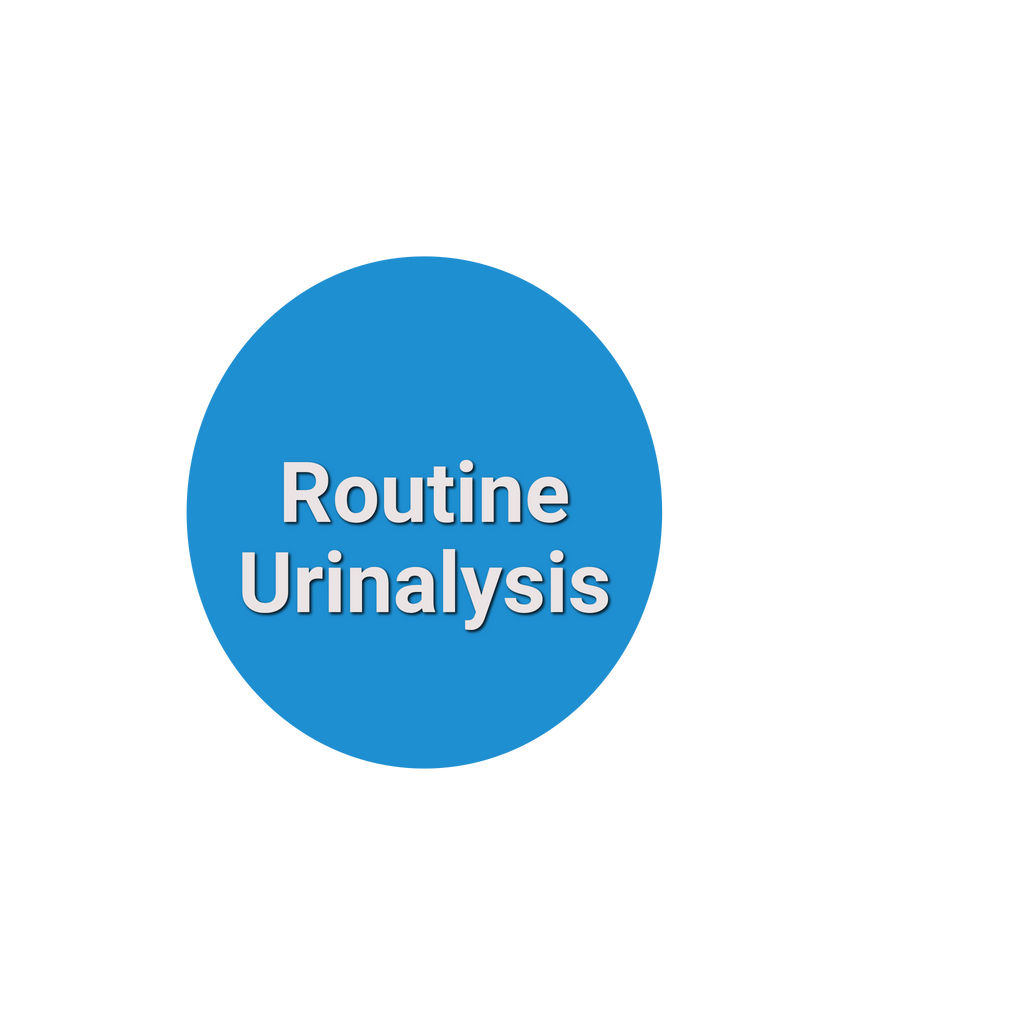

Routine Urinalysis
$ 29.99
The Routine Urinalysis includes the following components:
Specific Gravity: The concentration of the urine sample. This is used to help evaluate the level of certain substances dissolved in the urine. Low specific gravity can be the result of ingesting large amounts of water prior to urination
pH: This is affected by the acid/base balance in the body. A pH which is too high or low can result in the formation of crystals in the urine which can lead to the development of kidney stones. PH can be adjusted through diet or medication.
Color: Darker urine coloration can result from some medications, eating certain foods, blood in the urine, dehydration or fever
Appearance: Cloudy or turbid urine may be caused by bacteria, red blood cells, white blood cells, mucus or contaminants such as lotions or powders
WBC Esterase: White blood cells in the urine is typically a sign of a bacterial urinary tract infection. It may also be caused by inflammation in the kidneys.
Protein: The amount of albumin in the urine. Protein in the urine can be a sign of kidney disease or conditions affecting the urinary tract.
Glucose: Glucose in the urine can be a sign of abnormally high blood sugar levels such as those caused by diabetes.
Ketones: Ketones are produced when the body metabolizes fat. They can indicate a number of conditions including starvation, a high protein/low carbohydrate diet, diabetes or frequent vomiting.
Occult Blood: Blood in the urine can indicate a number of conditions affecting the kidneys or urinary tract. It can also be caused by contamination from sources such as menstruation, hemorrhoids or vaginal bleeding.
Bilirubin: Bilirubin is a waste product produced by the liver. Bilirubin in urine can be an early indicator of liver disease.
Urobilinogen: Urobilinogen is formed from Bilirubin. Its presence in urine is typically a sign of liver disease.
Nitrite: Nitrite in the urine is usually caused by bacteria which can indicate a urinary tract infection.
An additional microscopic examination will be performed only if WBC Esterase, protein, occult blood or nitrite are positive. Microscopic examination may include some or all of the following if results warrant:
White Blood Cells (WBC): WBC's in urine usually indicate inflammation or infection of the urinary tract.
Red Blood Cells (RBC): RBC's in urine can be caused by inflammation or injury to the kidneys or urinary tract.
Epithelial Cells: High concentrations of epithelial cells is typically caused by infection or inflammation of the urinary tract.
Crystals: Crystals may be formed by various particles which are dissolved in urine. Crystal formation may be due to an abnormal pH balance or a higher than normal concentration of particles. Crystals formed in the kidneys may lead to the development of kidney stones.
Casts: Casts are cylindrical particles formed from proteins secreted by the kidneys. In people with kidney disease, substances such as RBC's or WBC's may become trapped in the proteins. Examining the casts can help differentiate between types of kidney disorders.
Mucus: Mucus in the urine may be the results of a urinary tract infection or conditions affecting the digestive system, certain STD's or kidney disease.
Bacteria: Bacteria in the urine is usually indicative of a urinary tract infection. Care should be taken to avoid contaminating the specimen with bacteria.
